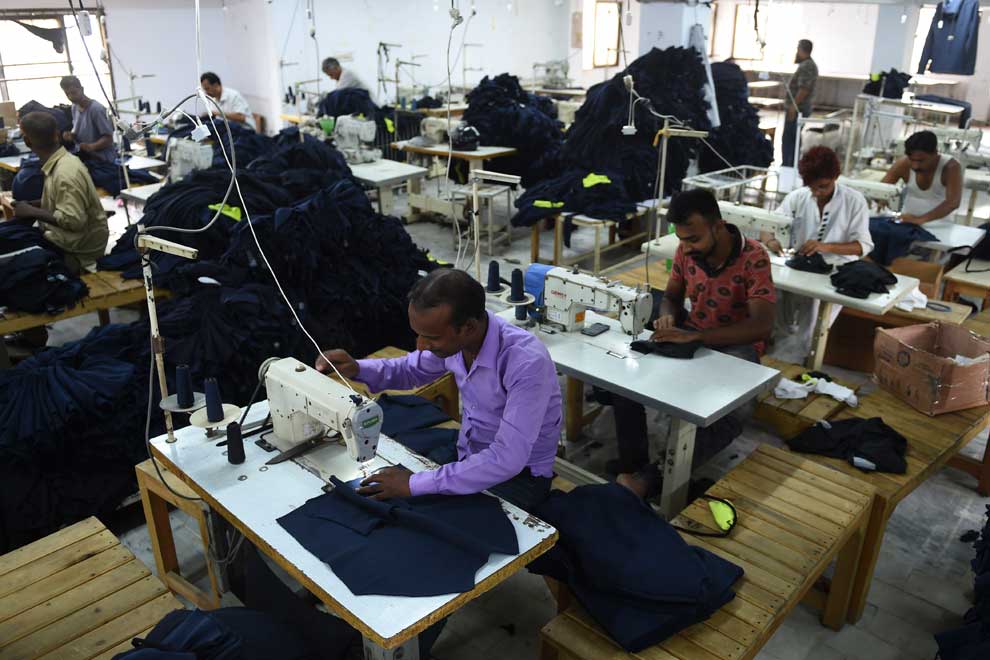
While the GSP-Plus facility has been available to Pakistan since January 2014, its continuation is an award for Islamabad’s progress in enacting new laws and developing new institutions for implantation of 27 core conventions of GSP-Plus. AFP
The International Trade (Inta) Committee of EU Parliament has extended the Generalised System of Preferences-Plus (GSP-Plus) status for Pakistan, enabling the country to continue to enjoy preferential duties on exports for the next two years.
While the GSP-Plus facility has been available to Pakistan since January 2014, its continuation is an award for Islamabad’s progress in enacting new laws and developing new institutions for implantation of 27 core conventions of GSP-Plus, especially the National Action Plan (Nap) for human rights.
Pakistan’s third biennial assessment report, which was published by the European Commission on February 10, was discussed by the Inta on February 19 and by the GSP Working Party of the European Council a week later.
The European Commission and External Action Service has recommended at both the forums to continue the GSP-Plus scheme and stated their monitoring priorities for the next biennial monitoring cycle, which are given in the report. There is a clear indication that the EU authorities are satisfied with the results of the third biennial assessment of GSP-Plus and are focused on the next biennial monitoring cycle.
In view of the outcome of the third biennial review of GSP-Plus, the Ministry of Commerce commended the efforts of all ministries and departments of the provincial and federal governments as well as the governments of Azad Jammu and Kashmir and Gilgit-Baltistan that cooperated and formulated laws, developed policies and established institutions to implement the 27 conventions related to GSP-Plus.
An official statement said the commerce division would also like to appreciate the contribution of the office of the attorney general as ‘head of the treaty implementation cell’ for coordinating and steering the process of the implementation of GSP-related conventions.
“On behalf of the government of Pakistan, the Ministry of Commerce (MOC) conveyed its gratitude to the EU for providing this unilateral trade concession to Pakistan. MOC hopes that the business community will capitalise further on this trade enhancement opportunity,” added the statement.
Taking to Twitter, adviser to the prime minister, Razak Dawood, thanked the EU institutions for the extension. “This wil strengthen our resolve to continue to improve the social and economic conditions of our people,” the adviser said, asking the business community to “diversify your exports to capitalise on this opportunity to the optimum”.
Pakistan’s first biennial assessment of GSP-Plus was conducted in 2016, followed by another assessment in February 2018, while the third biennial assessment report was published by the European Commission on February 10 this year.
On the economic front, Pakistan was a significant beneficiary of the scheme also availed by nine other countries in the world.
As a result of the duty-free access available to Pakistan in 27 EU member states, Pakistan’s exports to the EU enhanced from 4.538 billion euros in 2013 (before the GSP-Plus status) to €7.5 billion in 2019, registering an increase of 65per cent.
In 2018, Pakistan availed tariff concessions on exports worth €5.8 billion out of the total export of €6.7 billion to EU member states.
The main sectors that benefitted from GSP-Plus have been textile and garments, which besides earning foreign exchange for the country, provided employment opportunities, especially to women.
DAWN (PAKISTAN)/ASIA NEWS NETWORK











